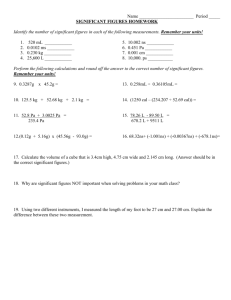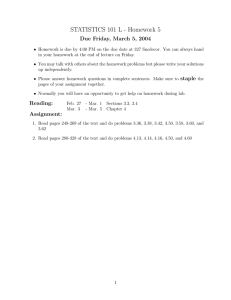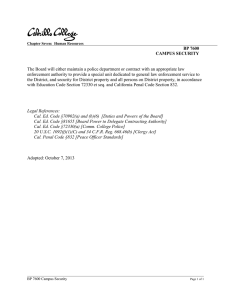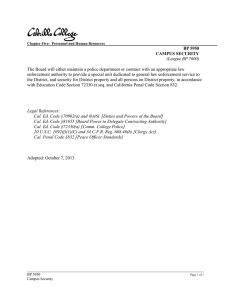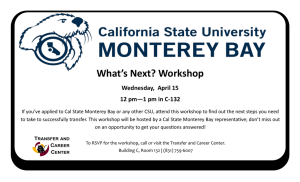LC Cal Testbeam Discussion Slides(ppt)
advertisement
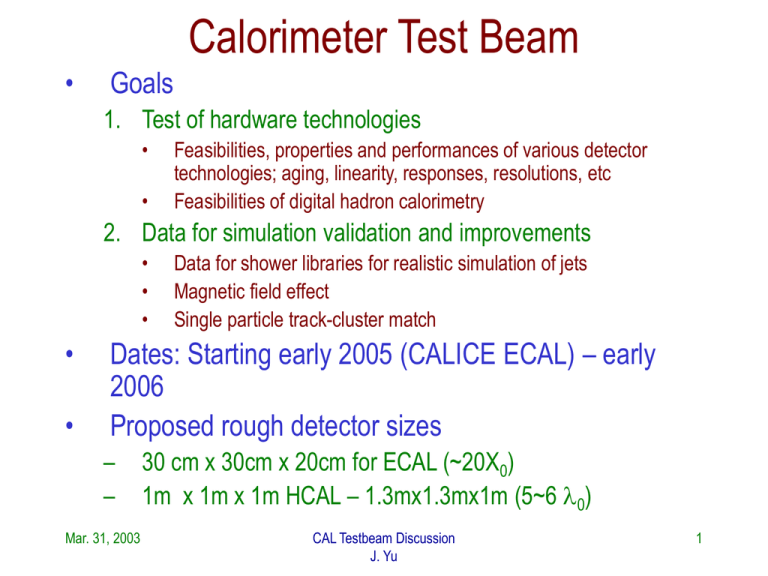
Calorimeter Test Beam • Goals 1. Test of hardware technologies • • Feasibilities, properties and performances of various detector technologies; aging, linearity, responses, resolutions, etc Feasibilities of digital hadron calorimetry 2. Data for simulation validation and improvements • • • • • Data for shower libraries for realistic simulation of jets Magnetic field effect Single particle track-cluster match Dates: Starting early 2005 (CALICE ECAL) – early 2006 Proposed rough detector sizes – – Mar. 31, 2003 30 cm x 30cm x 20cm for ECAL (~20X0) 1m x 1m x 1m HCAL – 1.3mx1.3mx1m (5~6 l0) CAL Testbeam Discussion J. Yu 1 • Initial facility requirements – Beam with wide kinematic ranges at an adequate rates • Particle types: p, K, p, m, e • Momenta of particles: 1 ~ 150 GeV w/ 1% momentum bite • Rate: no more than 100Hz – Beam instrumentation • 1% beam momentum and position measurements • PID, such as Cerenkov counters, and selection • Neutral tagging (TOF) – Sufficient Mechanical Infrastructure • Rotational support table • Crane up to 5 tons – Floor space ~ 10x10m2 • Length of stay: few years • Length in beam: 2-4 months each Mar. 31, 2003 CAL Testbeam Discussion J. Yu 2 Comparisons of TB Facilities Facilities Particles p-ranges Availability Contact FNAL MTF p, K, p, m, e 5-120 GeV/c From early 2003 E. Ramberg SLAC–ESA g, e+, had <45GeV e <13GeV had Available now IHEP-Protvino had, e, m <45GeV e 33-45GeV h From 2004 BNL-AGSB2 e, p, K, p, m <10GeV Dependent on AGS Status JLab N/A 2007-8 due to upgrade CERN Pretty bad after 2004 DESY e+, e- 1-3(??)GeV Not clear Frascati Not clear Up to 50GeV Available now KEK Mar. 31, 2003 N/A 2004-5 CAL Testbeam Discussion J. Yu 3 How do we organize? • When do we want to do this and for how long? – Late 2005 early 2006? Why? For a few years… • Where do we do this? – Based on the necessary particle types, momentum range, availability, Fermilab seems to be the best place to do this. • Who are the participants? Mar. 31, 2003 CAL Testbeam Discussion J. Yu 4 Groups Showed Interest in TB • ECAL – Si/W (Oregon, R. Frey) – Crystal detector (U. Mallik) • HCAL – Scintillator tile (NIU, D. Chakraborty) – RPC (ANL, J. Repond) – GEM (UTA, A. White & J. Yu) • Calorimeter-based luminosity monitoring – Cerenkov Compensated Calorimetry (Y. Onel) Mar. 31, 2003 CAL Testbeam Discussion J. Yu 5 How do we organize? • When do we want to do this and for how long? – Late 2005 early 2006? Why? For a few years… • Where do we do this? – Based on the necessary particle types, momentum range, availability, Fermilab seems to be the best place to do this. • Who are the participants? • What is the setup for testbeam? Mar. 31, 2003 CAL Testbeam Discussion J. Yu 6 A Possible LC CAL Testbeam Setup Beam halo veto scintillator paddles Tagging scintillator paddles surround CAL modules Scintillator hodoscopes Beam ECAL HCAL Dead material Wire Chambers (3-views) S. Magill Mar. 31, 2003 CAL Testbeam Discussion J. Yu 7 How do we organize? • When do we want to do this and for how long? – Late 2005 early 2006? Why? For a few years… • Where do we do this? – Based on the necessary particle types, momentum range, availability, Fermilab seems to be the best place to do this. • Who are the participants? • What is the setup for testbeam? • Who builds which part of the setup? – Each sensitive gap technology construct their own sensitive gap detectors? – What about DAQ? • Front-end? Backend? Data recording? – How about absorber plates for sampling calorimeters? Mar. 31, 2003 CAL Testbeam Discussion J. Yu 8 • • • • What is the readout granularity we want? How do we organize TB software development? In what time table do we work? Where do we obtain financial support for coordinated effort? DOE? NSF? Each group figure out by themselves? • What are the other detector groups’ efforts? – We need to work together with them to approach facilities as a concerted group effort. Mar. 31, 2003 CAL Testbeam Discussion J. Yu 9
